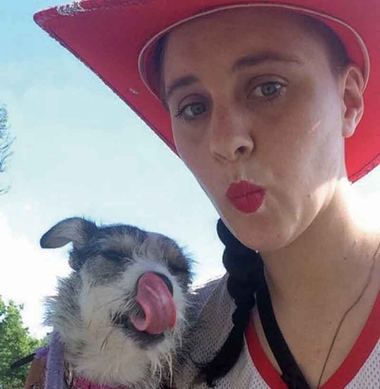Asexual but not alone

by Kara Kliewer
Staff Writer
“So far, everyone has accepted it,” said Sahara Haubert, a senior at the University of Central Oklahoma in Edmond. “Okay, that’s a lie. I’ve had a few people who don’t seem to believe it.”
As Asexual Awareness Week (October 26th – November 1st) approaches, Haubert opens up about her asexuality.
According to the Asexual Visibility and Education Network (AVEN), asexuality is a way for individuals who lack sexual attraction to other people to describe themselves.
“Basically, an asexual person does not have sexual attraction; however, they can become aroused and have/enjoy sex,” added Haubert.
The concept of not being sexually attracted to someone else but being able to enjoy it can be difficult to understand.
“I get the whole, ‘Humans aren’t asexual,’ or ‘So you’re a plant?’” said Haubert. “It can be frustrating, but I’ve decided, instead of getting angry, to try my best to educate everyone I can about asexuality.”
Indeed, understanding the various forms of attraction help to further understand asexuality.
For example, when describing sexual orientations, prefixes* like bi, hetero, homo, pan, poly or demi are often used. These same prefixes can also be applied to romantic attraction. One can be romantically attracted to individuals of the opposite gender, same gender or any gender and not see the need for sex.
Romantic attraction dictates that the individuals involved are more bonded than those platonically attracted; however, their physical reactions may end at kissing, hugging, holding hands during a walk or sitting and enjoying dinner together.
In addition to romantic attraction, one might experience aesthetic attraction to someone (appreciating a person for their appearance), sensual attraction (desiring non-sexual intimate contact), emotional attraction (desiring someone based on personality) or intellectual attraction (attraction to someone’s intellect).
To be clear, asexuality does not mean that an individual will remain celibate, has a sexual disorder, is making a conscious choice not to have sex or is afraid of sex.
“Honestly, the biggest thing is you are not alone,” stated Haubert. “You are not broken. There are a lot of people who don’t understand. Do not let them get you down.”
Often, asexual individuals may enjoy romantic relationships without sexual attachments or they enjoy relationships with neither romantic nor sexual attraction. It varies per person.
Some asexual individuals enter both sexual and romantic relationships with non-asexual individuals. While they don’t experience sexual attraction to their partner, they still can choose to have sexual relations for various reasons and can experience pleasure as a response to stimulation.
Ultimately, it can be difficult for asexual individuals to define their attractions to sexual individuals.
“Always be prepared to answer questions you are comfortable with - however you never need to explain yourself if you aren’t comfortable,” added Haubert.
Being asexual does not make you any less viable as a person. If someone doesn’t understand, education is the best option, but some may persist in negativity.
However, with continued education and a growing asexual community, the future seems bright for asexual individuals.
“When you do find another asexual at Pride or another LGBT+ event, talk to them!” said Haubert. “I had a girl almost cry at Pride because she was so excited to meet another asexual. We exist and that’s wonderful.”
*Prefixes: bi, bisexual; hetero, heterosexual; homo, homosexual; pan, pansexual; poly, polyamorous; demi, demisexual.
Copyright The Gayly – October 22, 2017 @ 7:10 a.m. CDT.





